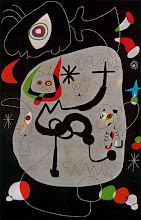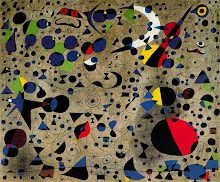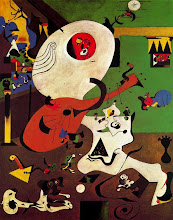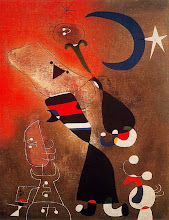The couple wants to be, it seems, but is not, the adult, however, it is u, while the majority is a being settled, a rag to be suspended in any of his achievements.
Heidegger thought to be as existence or being-there, being in the world, in time and space, to be in the human body, contained in anatomy and physiology, immanent, but transcendent, as the function of thinking, but beyond discourse, paradoxically, within a gap to exist, light, a area in the forest clearing, where the individual is being held in a human being.
Kant postulated to be theoretical and abstract, as is the thesis (position). The elucubrado be for Kant is to be verbal, will encontradiço between subject and object: the being of speech, be logical ( "logos" Greek).
The being-there, the being that exists in humans, which is in the world and outside it (the consciousness and self-awareness), beyond the speech and the speech, to be held in in the courageous behavior, consistent with their thinking : o be done puts your mind in the world and facing a position that takes, takes assault, plant where its territory.
The must be done their knowledge, a knowledge of its own, free, trained and created in your brain on the world, things, objects, the very thought, etc.. But know this supreme and is free to be held separate from being, a being is minimized, at least be (as the scientists and philosophers, in their naivety, thought to be the maximum of wisdom), but in fact, know is only a tiny part of the being: the science is just something infinitely poorer that be the be the man, the human being that he is being held beyond the mere knowledge or experience or a combination of both. It is ineffable, almost indescribable: the being is an experience that Heidegger called Daisen (or being-there, there in the world, out there for me and here within me, creating and supporting my knowledge, the part that a dialogue with the be beyond the discursive world, the universe of science and mathematics or poetry (which are the 'small is "science, speech and art, portions of the technology are being, only to be belittle, mixed, sold to USA complexity and transcendence: they are mere expressions of being, not to be, which is broader and deeply complex).
This is being done in humans free, independent, master of his concepts and his knowledge, master of his universe inside ee outside the territory where he began, where its position dialectic of war and peace, ready to confront the difficulties to brave address the views or positions of other be-there-be there in the front, placed in contrast to be here that I or any other human being that is within the general life and the life that is itself within and outside your body.
This is settled, most unfortunately, also labeled the people, is the man who follows the opinions of others, gullible, the stupid and the idiots who have no freedom even inside: the most educated genetically unfortunate to be slaves since the beginning of human society: the thought of them breeding is obedience, not knowledge: it is the poor man obedient, not the homo sapiens sapiens, a minority, an elite whose percentage makes two percent at most of humanity, unfortunately.
Wikipedia, la enciclopedia libre
EL SER: Be (Wikipedia: BE) from the point of view (Wikipedia: point of view) of the dynamic systems (Wikipedia: Dynamics SYSTEMS) ta interaction (Wikipedia: Interactionism) feeds the organization (Wikipedia: ORGAQNIZACIÓN) of way that provides adaptive capabilities of al system (Wikipedia: capacity adapted) that is assigned the category of the environment (Wikipedia: ASGNA Under the category of).
Philosophical schemes
It generally has been regarded as an al end be synonymous with the entity between, (Wikipedia: SER as a synonym for entity and Under) in both that would be a thing ((Wikipedia: COSA) that pose existence and autonomy (Wikipedia: EXISTENCE AND RANGE) . onment: (del latin ens, entis, Participio of this verb (Wikipedia: WORD OF THIS PATICÍPIO) that, be there (Wikipedia: There is)) the anomalies of the verb (Wikipedia: anomalies of the verb) be (infinitive use (Wikipedia : USE infinity) as Participio, use of another infinitive) were noted by the grammar (Wikipedia: Grammar) of fines del s. XVII y principios del s.XVIII and determined who should be construed as an infinitive to express the act and crearon Participio this environment (del latin ablative case: ens-entis). But this rule in pasó al lenguaje corriente: only if she atuvieron to the scholars (Wikipedia: scholars). In philosophy (Wikipedia: philosophy) is still common (Wikipedia: COMÚN) see commit incorrección of the call to be a subject that in reality (Wikipedia: REALIDAD) es un ente.
* According to Martin Heidegger, (Wikipedia: MARTIN HEIDEGER) esto es uno de los mayores errors in the history of philosophy. (Wikipedia: history of philosophy) In effect, the philosopher down to the Metaphysics (Wikipedia: philosophy, metaphysical) as the oblivion of being. (Wikipedia: Forgetting DEL SER).
* According Parménides (Wikipedia: PARMÉNIDES) defines it as what the hay is in general (Wikipedia: DEFINE WHAT ARE EN GENERAL). Every so opposite to the not (Wikipedia: TODO LO opposite LA NADA)
* According to Platon (Wikipedia: Platon) is the idea the property, (Wikipedia: IDEA) being this: inmaterial, absolute, perfect, eternal and inmutable (Wikipedia: INMATERIAL, absolute, perfect, eternal, INMUTABLE).
* According to Aristotle (Wikipedia: ARISTÓTELES) as being the substance, (Wikipedia: Sustancias) composed of matter and form (Wikipedia: FORM MATERIAL Y) of which are inseparable together. Considering the different philosophical points (Wikipedia: PHILOSOPHICAL distinct points), it can be seen as Aristotle established the base in the own knowledge, (Wikipedia: KNOWLEDGE) that al be expressed, whether by organizan predicates (Wikipedia: Predici) that divulgan from a subject with its meaning (Wikipedia: subjects, MEANING) own (as a concept intuición of it real, as an attribute (Wikipedia: CONCEPT, INTUICIÓN, REAL, attribute) del sujeto de la oración (Wikipedia: SUJET DE LA Oración). Other entienden esto ideas as to where the sermon is by analogy, (Wikipedia: Predici by analogy) siendo su predicación (Wikipedia: PREDICACIÓN) propia lo que le corresponds to the first substance (Wikipedia: FIRST SUBSTANCES) u can only perform the function of subject de la oración (Wikipedia: SUJET DE LA Oración) and, secondarily by analogy to the accident can predicarse (Wikipedia: ACCIDENTES). Sustancias and accidents constitute the contents of preaching that can be, according to the categories. (Wikipedia: Categories). Ahora bien, ¿qué Deber is then to be understood? Ser es, ante todo, which is expressed through the mode of an infinitive verb, the verb that means that all those who made sean las cosas, y lo que sean son, but the same as being infinite and the limits have is a horizon (Wikipedia: LIMITS OF HORIZON) but is not any environment, no es ninguna cosa. Además, según el mismo Heidegger, being is time, because these are the things that remain , but that in a time dan (Wikipedia: TEMPORAL). To understand the concept (Wikipedia: UNDERSTAND THE CONCEPT) is necessary to be contraponerlo (Wikipedia: CONTRAPORLO necessary) with the concept of environment (the thing that is). In effect, "is always be the one to be loved" (See Being and Time), pues no hay land beings for themselves, but that's always been the be in an environment that is. Think, for example (Wikipedia: Ejemplo) that a person (an entity) can be) (Wikipedia: may be) many things: it can be a professor (Wikipedia: Professor), can be a priest, (Wikipedia: SACERDOTE, HIJO) can be a child ... and everything reminds between al mismo, esto es to be by and between the son mismo.Entonces it can be concluded that hare referencia a los (Wikipedia> modes) modes [1] that has the environment of Darses in the world. De ahí dijera that Aristotle in his Metaphysics (Wikipedia: Metaphysics of Aristotle) (Book VII) that "it is many ways of dice." In book VI of the Metaphysics, Aristotle states that if dice to be many ways: se dice de acuerdo con las categorías (que son la entidad, el lugar, el tiempo, el padecimiento (Wikipedia: Contracting, PLACE, TIME, PADECIMIENTO) , among others), pero también se dice of the accident, act of, of the power of truth and of the falsedad (Wikipedia: ACT, POWER, VERADAD, FALSEDAD) (that being the sale-be). (WIIPEDIA: NO-BE). Subsequently, the philosopher (Wikipedia: philosophy) going to consider that due to esa multiplicity of meanings, as you can ask What is it?, Because we must clearly define the term by which the questions and, if there is a science (Wikipedia: SCIENCE ) that the study be, which is the object that study (Wikipedia: OBJECT). Then, says Aristotle (Book VII) that all the senses in which the dice are said to be the substance, (Wikipedia: SUBSTANCES) that is ground at all. In effect, the substance of decimes that is in this place that has this color, which suffers such cosa, y todo lo que es decimes the well the well is an entity that is directly to it. Por eso, Aristotle proposed that in lieu of preguntarnos why is the be, we must preguntarnos por qué es la entidad. The oblivion of being in the metaphysical (Wikipedia: Forgetting DEL SER EN LA Metaphysics): However, after Aristotle the Cayo be in the oblivion, according to Martin Heidegger. The term "oblivion of being" is used by the philosopher to explain that, in the history of metaphysics after Aristotle (Wikipedia: HISTORIA DE LA Metaphysics A POSTERIOR ARSITÓTELES), be and is confundieron entity, because if the tomaba as synonyms, so, in effect, be it the Olvidó. The problem (Wikipedia: PRB) of al be considered as a bad entity (the entity included as the: as God) (Wikipedia: DIOS) is that it cosifica (Wikipedia: COSIFICA), esto es, if it takes as a thing, when the be, precisely, is not a thing. Así pues, never studied it properly, which bring to misunderstandings. Consider that, for example, the run is not a thing, but an action (Wikipedia: ACCIÓN), and that would be very wrong tomarlo as an entity. Lo mismo pasa con el ser.
References
1. ↑ The ways of being (Wikipedia: WAYS TO BE): necessary, possible, real (Wikipedia: necessary, possible, REAL)
Bibliografía
* Martin Heidegger: Being and Time, (Wikipedia: MARTIN HEIDEGGER, BEING AND TIME) 1927, Editorial Universitaria, Santiago de Chile, 1997. Trad. by Jorge Eduardo Rivera C.
* Martin Heidegger: Being and Time (Wikipedia: HEIDEGGER: BEING AND TIME), Ediciones del Departamento de Estudios Históricos y Filosóficos, Universidad de Chile, Sede de Valparaíso, Viña del Mar (Chile) (Wikipedia: Universidad de Chile, Valparaiso, Viña DEL MAR), 1975. Contiene: Martin Heidegger: Tiempo y Ser Alfredo Guzzoni: Protocol for a Seminar on the conference Tiempo y Ser Fédier et François. al.: Protocol Seminar for the Le Thor, 1969. Francisco Soler Grima Traducciones y María Teresa Poupin Oissel (edición for commercial use in university).
* Martin Heidegger: Introduction to the metaphysics (Wikipedia: HEIDEGGER: INTRODUCIÓN LA Metaphysics) (1953), Editorial Nova, Buenos Aires, (Wikipedia: EDITORIAL NOVA, BUENOS AIRES) 1955. Traducción de Emilio Estiú / Editorial Gedisa, Barcelona (Wikipedia: Editorial Gedisa, Barcelona), 1993. Traducción de Angela Ackermann pillar.
* Martin Heidegger: basic concepts, (Wikipedia: HEIDEGGER: FUNDAMENTAL CONCEPT) Alianza Editorial, Madrid, (Wikipedia: EDTORIAL Alianza, Madrid) 1989. Second edition: 2006. Altay Ediciones, Barcelona, 1997. Traducción de Manuel E. Vázquez García. Original Title: Gesamtausgabe "Grundbegriffe. Course Freiburg, half the summer of 1941. Vittorio Klostermann, Frankfurt a. M. Edición de Petra Jaeger (1981).
* Martin Heidegger: Philosophy, Science and Technology, (Wikipedia: HEIDEGGER: PHILOSOPHY, SCIENCE AND TECHNICAL) Editorial Universitaria, Santiago de Chile, (Wikipedia: Editorial Universitaria, Santiago de Chile) 4 ª edición, 2003. Traducción de Francisco Soler Grima. Edición de Jorge Acevedo Guerra. Incluye: La pregunta por la técnica, Ciencia y Meditaciones, La Vuelta, Building Thinking Habitar, La cosa, ¿A qué llama is thinking, "Tiempo y Ser gathers texts: a)" Vorträge und Aufsätze, Verlag Günther Neske, Pfullingen, 1954. b) "Zur Sache des Denkens," Max Niemeyer Verlag, Tübingen, 1969. c) "Die Technik und die Kehr, Verlag Günther Neske, Pfullingen, 1962.
* Martin Heidegger: Being and Time, Editorial Tecnos, Madrid, (Wikipedia: Editorial Tecnos, MADRID) 1999.Trad. by Manuel Garrido, José Luis Félix Molinuevo and Duke. Introduction of Manuel Garrido. Título original: "Zur Sache des Denkens," Max Niemeyer Verlag, Tübingen, 1969.
sábado, 2 de maio de 2009
Assinar:
Postar comentários (Atom)





Nenhum comentário:
Postar um comentário